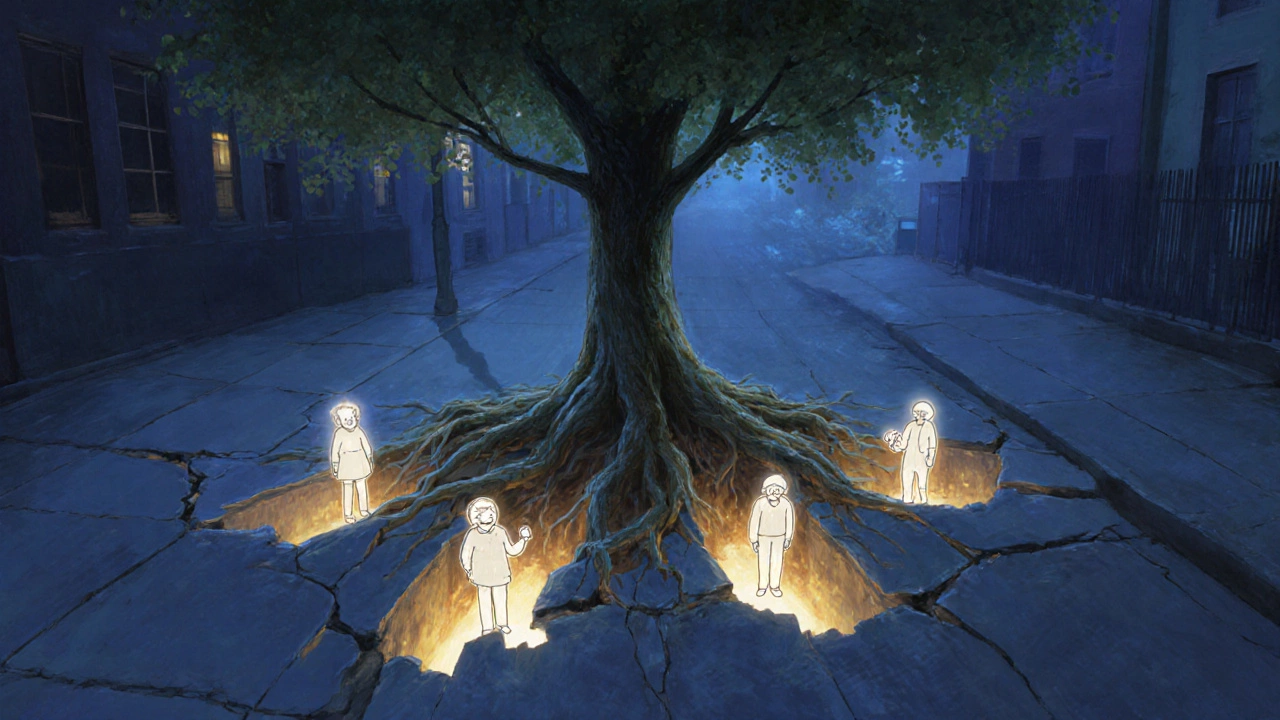Volunteer Role Finder
Find Your Perfect Volunteer Role
Answer a few quick questions to get personalized recommendations that match your interests, skills, and schedule.
Why This Matters
The right volunteer role can transform your life. As the article says: "Volunteering doesn't fix the world. It fixes you."
People ask me all the time: Is it a good idea to volunteer? It sounds simple, but the answer isn’t just yes or no. Volunteering isn’t a charity checklist. It’s not something you do because you feel guilty or because your school requires it. It’s a real, messy, life-changing choice-and the payoff isn’t always what you expect.
You don’t need to save the world to make a difference
I used to think volunteering meant building houses in another country or running a food bank for 40 hours a week. Then I started helping out at the Bristol Community Garden every Saturday. Two hours. That’s it. I watered plants, pulled weeds, and talked to Mrs. Patel, who’s 82 and grows tomatoes no one else can grow. She calls them her "sun babies."That’s not heroic. But six months later, I noticed something: my anxiety had dropped. I wasn’t thinking about work, my bills, or the news. I was just there, hands in dirt, listening to someone who’d lived through more than I could imagine. That’s the first thing nobody tells you: volunteering doesn’t fix the world. It fixes you.
Studies from the UK’s Office for National Statistics show people who volunteer regularly report higher levels of life satisfaction than those who don’t. Not because they changed society. Because they changed how they felt inside.
It’s not about your resume (but it helps)
You’ve heard the advice: "Volunteer to boost your CV." That’s true-but only if you’re doing it for the wrong reasons. If you show up at a shelter just to say you did it, people notice. They can tell when you’re there to check a box.Real volunteering means showing up even when no one’s watching. When the rain comes and the event gets canceled. When you’re tired. When the person you’re helping is grumpy. That’s where the real growth happens.
But here’s the thing: employers notice that. Not because you wrote "Volunteer at Food Bank" on your LinkedIn. But because you learned how to handle stress, how to work with people from different backgrounds, how to solve problems with no budget and no manager. That’s the kind of skill no online course can teach.
One young man I know volunteered at a local youth center after college. He didn’t get a job right away. But when he interviewed for a role at a nonprofit, he told the hiring manager about the time he stayed late to help a teenager who’d been kicked out of his home. He didn’t say he was "compassionate." He told the story. He got the job.
Not all volunteer roles are created equal
There’s a big difference between handing out sandwiches at a soup kitchen and training to be a crisis line volunteer. One might take 2 hours a week. The other might require 10 hours of training, a background check, and emotional resilience.Here’s how to pick the right fit:
- Start small. Try one shift. See how you feel.
- Match your skills. Good with kids? Tutor. Good with computers? Help a charity set up their website.
- Respect your limits. If you’re dealing with anxiety or depression, don’t take on a role that requires constant emotional labor. That’s not selfish-it’s smart.
- Ask about support. Good organizations offer training, supervision, and debriefing. If they don’t, walk away.
I tried animal rescue once. I loved the dogs. But the sight of injured animals made me sick for days. I stopped. No guilt. That’s not failure. That’s self-awareness.

The hidden cost: time, energy, and emotional toll
Volunteering isn’t free. You give time. You give energy. Sometimes, you give pieces of your heart.There are days when you show up and nothing changes. The shelter is still full. The child still doesn’t have a book. The tree still won’t grow. That’s normal. But it can wear you down if you’re not prepared.
Some people burn out. They start full of hope, then feel useless when they don’t see immediate results. That’s not your fault. It’s a sign you need to adjust your expectations-or your role.
Volunteering isn’t a quick fix for your sadness, your loneliness, or your guilt. If you’re looking for therapy, find a therapist. If you’re looking for meaning, start with something that feels sustainable. Not heroic. Just steady.
Who benefits most from volunteering?
The myth says volunteers help the needy. The truth? Everyone benefits.For older adults: Volunteering reduces isolation. In Bristol, the Silver Volunteers program pairs retired people with young families. One grandmother started reading to toddlers at the library. Now she calls them her "little bookworms." She says it’s the only thing that keeps her feeling useful.
For teens: A 2024 study by the University of Bristol found that students who volunteered regularly were 30% more likely to report feeling connected to their community. They also had better attendance and higher grades-not because they were "good kids," but because they felt seen.
For people in recovery: Many addiction recovery programs require community service. Why? Because helping someone else reminds you that you’re still capable of giving. That’s powerful.
For the community: A single person showing up every week creates a ripple. The librarian remembers your name. The kid you tutored starts helping others. The garden grows more food. It’s not about saving the world. It’s about making one corner of it a little kinder.

How to start without getting overwhelmed
You don’t need to sign up for a year. You don’t need to quit your job. Start with this:- Ask yourself: What makes me feel alive? (Not what looks good on paper.)
- Search local groups: Bristol Volunteer Centre, TimeBank, or your local library bulletin board.
- Try one event. One Saturday. One afternoon.
- Afterward, ask: Did I feel drained-or energized?
- If it felt right, try again. If not, try something else.
There’s no perfect role. No right way. Just the one that fits your life right now.
It’s not a gift. It’s a conversation
Volunteering isn’t about giving something you have to people who don’t. It’s about showing up as a human and saying: I see you. I’m here.That’s all it takes. No cape. No medal. No Instagram post.
So-is it a good idea to volunteer? If you’re ready to show up, listen, and stay even when it’s hard? Yes. It’s one of the best ideas you’ll ever have.
Do I need experience to volunteer?
No. Most organizations train you on the spot. Whether you’re sorting donations, walking dogs, or helping with events, they’ll show you what to do. The only thing they really need is your willingness to show up and learn.
Can I volunteer if I have a busy schedule?
Absolutely. Many roles only need one or two hours a month. Some are one-time events-like helping at a community clean-up or a holiday food drive. You don’t need to commit to weekly shifts. Even small contributions add up.
What if I don’t like the role after trying it?
It’s okay to move on. Volunteering isn’t a contract. If a role drains you, confuses you, or feels wrong, talk to the coordinator. Most will understand. Try another one. The right fit is out there-it just might not be the first one you try.
Is volunteering safe?
Reputable organizations do background checks and provide safety training. Always ask about their policies. If they don’t offer any, reconsider. Trust your gut. If something feels off, it probably is.
Can I volunteer with my kids or friends?
Yes. Many places welcome groups. Family volunteering is a great way to bond and teach kids about community. Just check ahead-some roles have age limits, especially those involving vulnerable people or heavy lifting.
